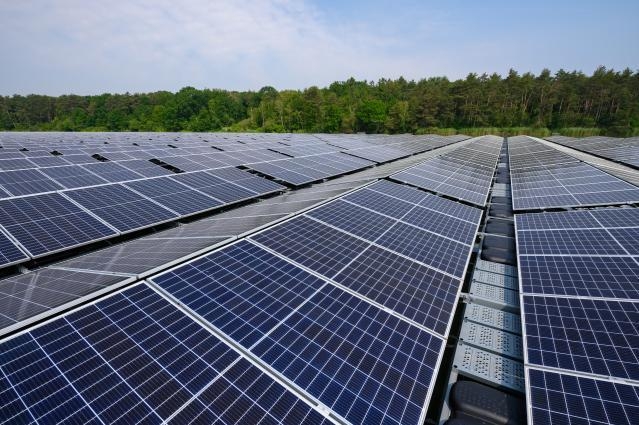RepowerEU, Member States exchange good practice for swifter renewable energy sources permit procedures
 From the day the RepowerEU energy plan was unveiled, the European Commission has wanted speeding up permits for the installation of new renewable energy plants to be one of the key pillars of the strategy to make the Union less dependent on fossil fuels and accelerate the green transition. Brussels wants to increase the share of energy obtained through renewable sources to 45% by 2030 from the initially planned 40%.
From the day the RepowerEU energy plan was unveiled, the European Commission has wanted speeding up permits for the installation of new renewable energy plants to be one of the key pillars of the strategy to make the Union less dependent on fossil fuels and accelerate the green transition. Brussels wants to increase the share of energy obtained through renewable sources to 45% by 2030 from the initially planned 40%.
On the day of the plan's unveiling made public on May 18, 2022, Energy Commissioner Kadri Simson estimated nine years for a wind power plant and four years for a solar power plant as the time needed to obtain permits for their installation. Acceleration in the green transition is together with energy savings and supplier diversification one of the three pillars of RepowerEU.
The journey of this pillar officially began with the holding of a workshop on permit-granting processes for renewable energy projects. Being attended by around 100 high-level officials from Ministries of the Environment, Energy and related Agencies of nearly all EU Member States, the event was an opportunity for States to gather experience and good practices identified at the Member States level and discussed on the remaining obstacles at national, regional and local levels in the authorisation of renewable energy projects. For its part, the European Commission deployed the capabilities of the Joint Research Center and its Energy and Industry Geography Lab, an online platform bringing together a wealth of information on relevant energy, industry and environmental factors aiming at assisting Member States in the identification of go-to areas for the rapid deployment of new installations for the production of energy from wind and solar renewable sources. The best practices come in particular from Austria, Belgium, Denmark, Finland, Germany and Spain which presented some examples related to site selection and simplified permitting procedures.
The dialogue will need to continue in the future as the states themselves acknowledged during the workshop that the current pace of deployment of renewable energy projects will need to be accelerated significantly to meet the needed capacity increase on time.
At the same time that the RepowerEU plan was adopted, the Commission also issued guidance to States for speeding up permit-granting procedures for renewable energy projects and facilitating power purchase agreements. Most of them are already favored by the Renewable Energy Directive (REDII), introduced in 2018 but submitted to a revision by the European Commission. Member States were obliged to transpose REDII, including these new provisions, into their national legislation by June 30, 2021, but no Member State declared complete transposition of REDII within this deadline. As a result, the Commission initiated infringement procedures against all Member States for lack of transposition of REDII in July 2021 in order to make them comply with their obligations, including those related to administrative procedures.
The EU Commission now wants to introduce more favorable permitting rules, opening the space to 'go-to' areas existing at Member State level in zones with low environmental risk, and more regulatory incentives created for innovative technologies, where procedures will be even more streamlined. Also, in the framework of the European Spring Semester fiscal policy coordination package, the Commission will use country-specific recommendations on energy policy to assess Member States' efforts and progress in investing in clean energy to achieve the goals of the European climate agenda.